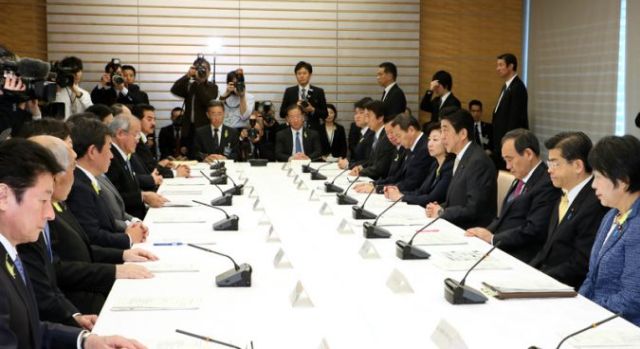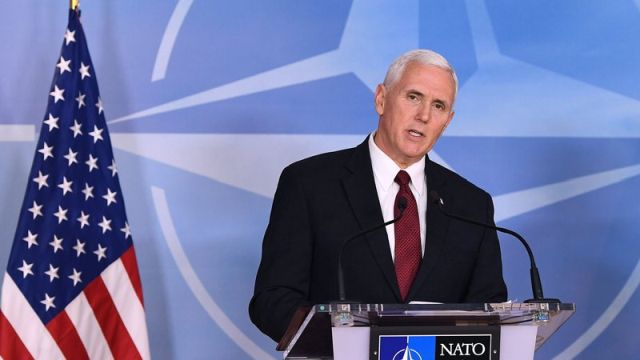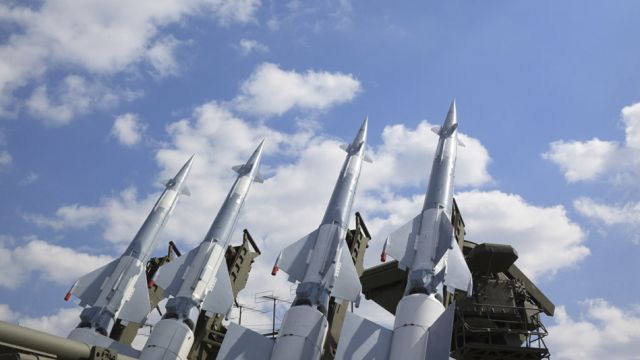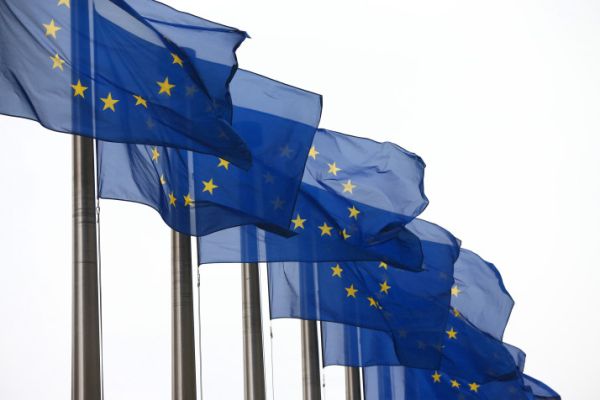
by Editor | May 25, 2021 | World
 Tokyo : The Japanese government on Friday imposed new unilateral sanctions on North Korea, which include freezing the assets of Pyongyang-based companies, in response to the launch of the country’s latest ballistic missile.
Tokyo : The Japanese government on Friday imposed new unilateral sanctions on North Korea, which include freezing the assets of Pyongyang-based companies, in response to the launch of the country’s latest ballistic missile.
The new sanctions come as an addition to a long list of punitive measures imposed by Japan which affect North Korean companies of different sectors and senior officials of the Kim Jong-un regime, as well as the movement of citizens between the two countries, reports Efe news.
The government decided to add 19 more companies to the list of businesses whose assets have been frozen, including companies involved in financial services, coal and oil traders, shipping and the supply of workers overseas, Chief Cabinet Secretary Yoshihide Suga said.
With the latest announcement, the total number of North Korean companies or entities subject to Japanese sanctions increased to 56, while 62 individuals have also been blacklisted.
Many of these entities and people also figure in sanctions by the UN Security Council.
In a press conference, Suga said the expanded sanctions, effective Friday, are in response to North Korea’s continued provocative statements and actions as well as a lack of progress on the issue of Japanese nationals abducted by North Korea decades ago.
He added that the move was timed to coincide with a UNSC ministerial meeting on the situation on the Korean peninsula, to be held in New York later on Friday.
The meeting will discuss the latest North Korean missile launch as well as the conciliatory message issued by United States Secretary of State Rex Tillerson this week, amid numerous calls for dialogue between the international community and the Kim Jong-un regime.
The intercontinental ballistic missile, launched by North Korea on November 29, is seen as another step towards the regime’s goal of developing a nuclear weapon capable of reaching US territory.
—IANS

by Editor | May 25, 2021 | World

US Vice President Mike Pence
Washington : US Vice President Mike Pence has said that Washington will keep up economic and diplomatic pressure on North Korea to curb its nuclear and ballistic missile programs.
Pence made the remarks on Friday during a visit to an Air Force base in North Dakota, home to both B-52 bombers and intercontinental ballistic missiles, Xinhua news agency reported.
The US will continue to apply “economic and diplomatic pressure” so as to make Pyongyang “abandon its nuclear and ballistic missile programs,” Pence said.
He also warned “all options are on the table” and the US will defend itself “with military power that is effective and overwhelming” when it is forced to do so.
Meanwhile, visiting US Secretary of Defence James Mattis also on Friday in Seoul said that “his country seeks no war, but the denuclearisation of the Korean Peninsula”.
The comments from the top Trump administration officials comes days before President Donald Trump’s Asia trip which is slated for November 3-14.
It would be his first trip to the region since assuming office, during which he would visit South Korea.
North Korea conducted its sixth nuclear test early in September and a series of ballistic missile launches in recent months.
In response, the UN Security Council adopted a new resolution toughening sanctions on Pyongyang over its most powerful nuclear detonation.
—IANS

by Editor | May 25, 2021 | World
 Washington : Aiming to cut off Pyongyang’s links to the global financial system, the US House of Representatives has approved a bill to impose more sanctions on North Korea over its nuclear programme.
Washington : Aiming to cut off Pyongyang’s links to the global financial system, the US House of Representatives has approved a bill to impose more sanctions on North Korea over its nuclear programme.
The bill approved on Tuesday received 415 votes in favour and 2 against, Efe news reported.
It is named after Otto Warmbier, an American student who died in June after spending more than a year in coma in a North Korean prison.
The legislation calls on the US Department of Treasury to freeze the accounts of foreign financial institutions that conduct business with North Korea.
“It’s time for those banks to choose between aiding and abetting the North Korean government or standing for peace with America and its allies,” Republican representative Andy Barr, the author of the bill, said during a house debate on Tuesday.
“Foreign banks can either do business benefiting North Korea or business with the United States. They cannot do both,” Barr said, adding that the current sanctions still failed to completely eliminate Pyongyang’s access to the global financial system.
The United Nations approved last month a new package of sanctions aimed at economically stifling North Korea, which includes limitations on the country’s petroleum and by-product imports as well as a ban on its textiles export.
According to estimates by the US, North Korea would lose $ 2.7 billion or about 90 per cent of its sales abroad together with previous sets of sanctions, which imposed an embargo on coal, iron, fish and seafood exports.
Warmbier was detained in North Korea in January 2016 when he visited the country as a tourist.
Authorities sentenced him to 15 years of hard labour after the 22-year-old was found guilty of attempting to steal a political propaganda poster from his hotel in Pyongyang.
He had fallen into a coma for more than a year before he was released in June 2017 and died a month after.
Warmbier’s parents said alleged their son was tortured in North Korea, an allegation US President Donald Trump agreed with.
Pyongyang, however, denied the allegations.
He died of complications stemming from a deficiency of blood and oxygen in his brain, according to the forensic report.
—IANS

by Editor | May 25, 2021 | World
 Seoul : Top nuclear envoys of South Korea and Japan held talks in Seoul on Thursday about the issue involving the Democratic People’s Republic of Korea (North Korea)’s nuclear and missile programs.
Seoul : Top nuclear envoys of South Korea and Japan held talks in Seoul on Thursday about the issue involving the Democratic People’s Republic of Korea (North Korea)’s nuclear and missile programs.
Lee Do-hoon, South Korea’s special representative for Korean Peninsula peace and security affairs, met with his Japanese counterpart Kenji Kanasugi at the foreign ministry building of South Korea in Seoul.
The two envoys exchanged in-depth opinions on ways to maintain the stable management of the Korean Peninsula situations and contain the North’s provocations through diplomatic efforts including dialogue and sanctions, Seoul’s foreign ministry said in a statement.
The bilateral meeting came a day after Lee and Kanasugi had a trilateral meeting also attended by top U.S. nuclear envoy Joseph Yun. On Thursday, a vice ministerial-level meeting was also held in Seoul between the three allies.
Lee and Kanasugi agreed to make more efforts to encourage North Korea to return to a path to denuclearization.
They also agreed to more frequently and closely meet to achieve a common goal of the complete dismantlement of the North’s nuclear program in a peaceful manner, according to Seoul’s foreign ministry.
The Seoul meeting between chief negotiators of South Korea and Japan for the currently stalled disarmament talks came amid rising tensions on the peninsula following the North’s sixth nuclear test in September and the exchange of strident rhetoric between Pyongyang and Washington.
—NNN-XINHUA

by Editor | May 25, 2021 | Investing, World
 Brussels : The European Union (EU) on Monday adopted a total ban policy on EU investment in North Korea, in a bid to ratchet up economic pressure on the Northeast Asia country over its ongoing nuclear and ballistic missile programme.
Brussels : The European Union (EU) on Monday adopted a total ban policy on EU investment in North Korea, in a bid to ratchet up economic pressure on the Northeast Asia country over its ongoing nuclear and ballistic missile programme.
The total ban, taking effect immediately, is one of the EU’s autonomous measures against North Korea which was adopted by EU foreign ministers at a meeting in Luxembourg, according to a statement of the Foreign Affairs Council.
The ban was previously limited to investment in the nuclear and conventional arms-related industry.
The Council also slapped a total ban on the sales of refined petroleum products and crude oil to North Korea, and slashed the amount of personal remittances transferred to Pyongyang from 15,000 euros ($17,7000) to 5,000 euros ($5,900).
Furthermore, the Council added three persons and six entities to a blacklist of those subject to an asset freeze and travel restrictions, bringing the backlist to 41 individuals and 10 entities.
The EU has carried out all UN sanctions against North Korea, in addition to its autonomous restrictive measures against Pyongyang.
The UN Security Council on September 11 unanimously adopted a resolution to impose fresh sanctions on Pyongyang over its nuclear test on September 3 in violation of the previous Security Council resolutions.
The new sanctions severely restrict Pyongyang’s oil imports, and ban its textile exports worth $800 million dollars and the remittances from about 93,000 overseas North Korea labourers.
Reiterating that the “dual–track approach” and the “suspension for suspension” initiative are practical methods to solve the Korean Peninsula nuclear issue, Chinese Foreign Ministry spokesperson Geng Shuang has called on all relevant parties to actively support China’s efforts to push for dialogue and negotiation, and play a constructive role for a peaceful solution of the issue.
Pyongyang on September 3 detonated a hydrogen bomb capable of being carried by an intercontinental ballistic missile (ICBM), the sixth nuclear test it has undertaken, running counter to relevant UN Security Council resolutions and the goal of denuclearising the Korean Peninsula.
—IANS

 Tokyo : The Japanese government on Friday imposed new unilateral sanctions on North Korea, which include freezing the assets of Pyongyang-based companies, in response to the launch of the country’s latest ballistic missile.
Tokyo : The Japanese government on Friday imposed new unilateral sanctions on North Korea, which include freezing the assets of Pyongyang-based companies, in response to the launch of the country’s latest ballistic missile.



